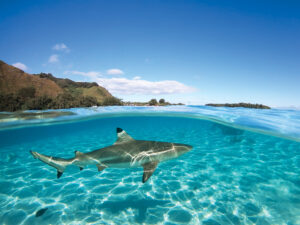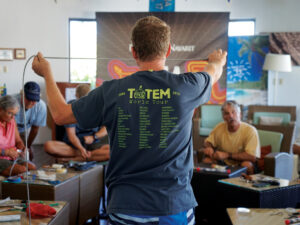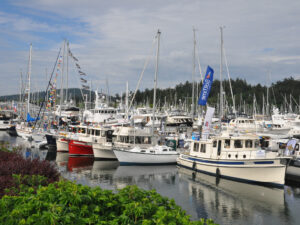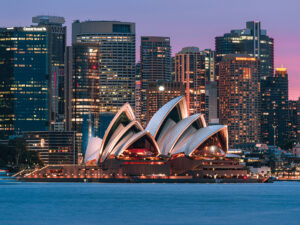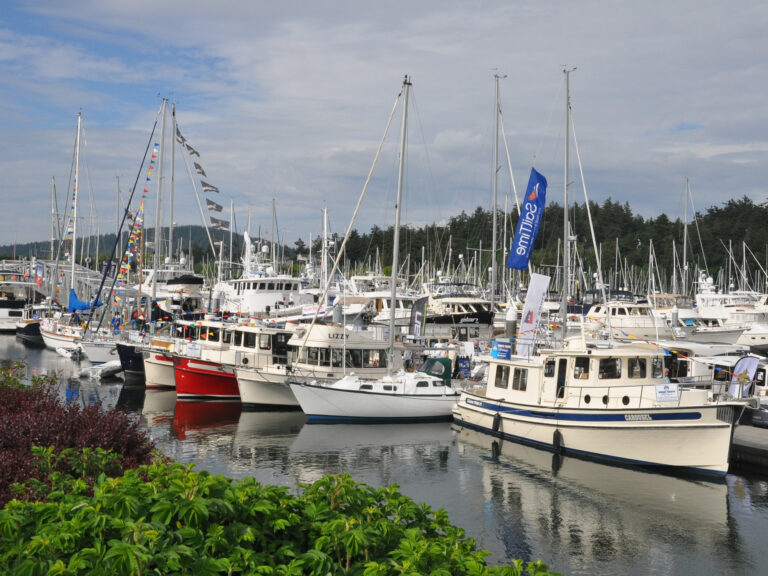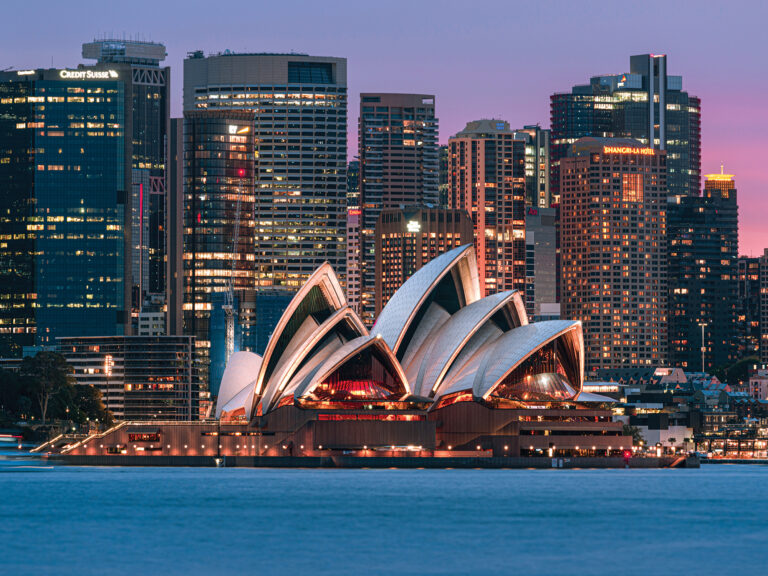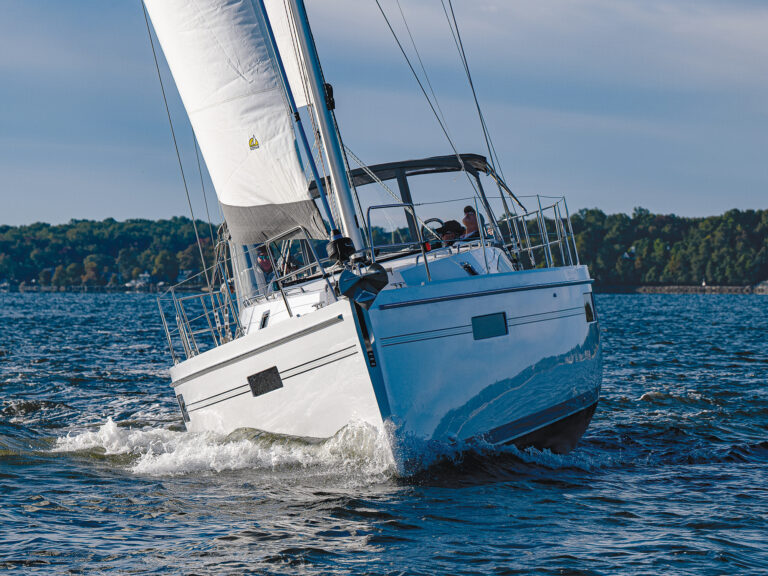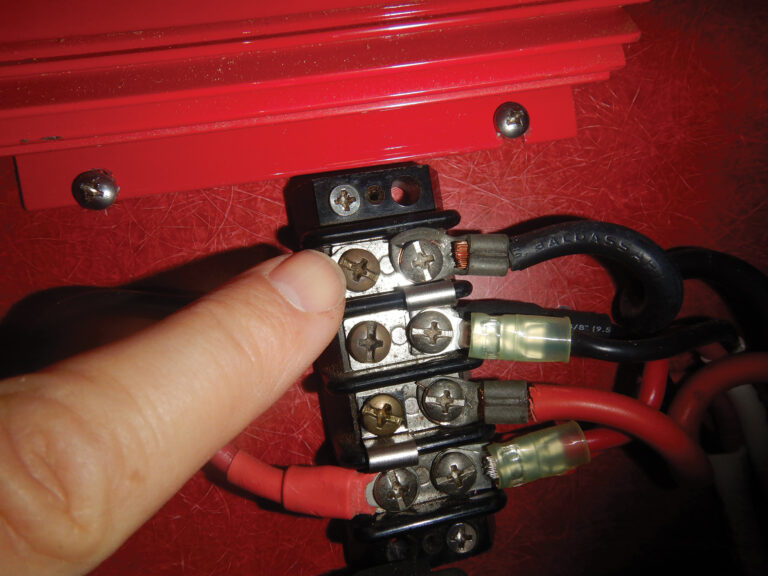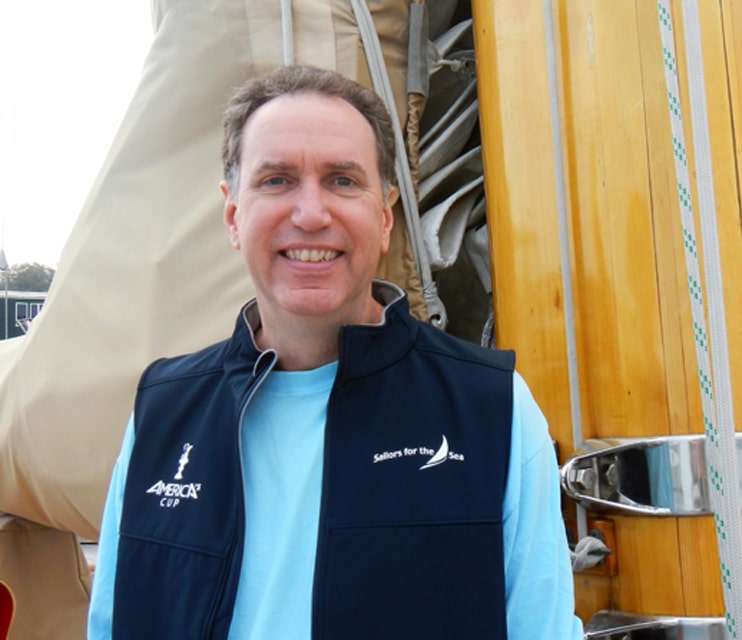
Since its founding in 2004, Sailors for the Sea has sought to educate the public and raise awareness about ocean health and climate change. It’s provided all who enjoy the water with the tools to do so responsibly and sustainably; among the group’s notable outreach programs are its Rainy Day kits and the Clean Regattas program.
SFS continues in its mission of outreach, education, and action, and has recently welcomed R. Mark Davis as president. Cruising World magazine, one of many longtime partners of SfS, recently caught up with him at the group’s offices in Newport, Rhode Island, to hear about his plans to take the group to the next level and engage the next generation of conservationists who are passionate and personally engaged in efforts to preserve the environment.
CW: Congratulations on your new position. Your background illustrates your ability to mobilize a variety of sectors (policy, private/corporate/commercial/volunteer) without government assistance, involvement or intervention. Tell us how your credentials will help you, in your new role with SfS, take it to the next stage of development.
MD: I bring to SfS a very diverse set of experiences from both the private and public sectors that enable me to connect the dots in a way that will allow the organization to scale up its programs to galvanize more boaters and the general public to care about the conservation of our oceans.
CW: Climate change is a big problem and the sailing sector of the marine industry is so small. How will you grow the stakeholder base?
MD: Many people believe that because we have the word Sailor as part of our name that we only focus on the sailing community. For us, a sailor is anyone who navigates water-borne vessels or assists as a crewmember in their operation and maintenance. So when you have this definition as your lens the stakeholder base is quite large. Sailors are not the root cause of the ocean’s problems; humans in general are the problem.
We’ve already started to grow our international base with SfS chapters in Japan and Portugal. We’re also interested in having the cruising community more engaged. We plan to broaden the Clean Regattas program both domestically and internationally, work with the powerboat community, and the charter community with organization such as The Moorings.
We also think there might be an opportunity to link the worldwide network of cruisers with remote telemetry monitoring systems to assess the ocean’s condition, ie, wherever a vessel is at any given time, it will have the ability to feed live data back to scientists for tracking change.
CW: Climate change is climate change and trash is trash. Tell me how, in your new role, you will forward SfS’s mission regarding educating the sailing public and mitigating each. What simple, concrete tips can you pass on to the CW community about what each person can do to reverse climate change and ocean pollution?
MD: The International Climate Change Partnership (ICCP) has really taken the lead in giving all of us guidelines and suggestions for what each of us can do individually. SFS is not out to recreate the wheel but build synergistic linkages for everyone we touch to be able to find the answers they need to be a force for change.
Here are some simple steps to reduce your carbon footprint:
- Sail! Or just reduce your engine use on your boat and in your car.
- Convert your engine to biodiesel.
- If you’re holding on to an old two-stroke engine, replace it with a four-stroke or better yet, electric engine.
- Offset your travel. Many airlines now offer the option to offset your carbon emissions when your purchase your ticket or at the end of the year calculate all of your flights and purchase carbon offsets to reduce your travel impact.
CW: Do you think the increasing role of the Citizen Scientist can be put to use by SfS, its members, and partners?
MD: The Around the Americas program was a citizen scientist project, with people involved in data collection and recording, including a partnership with NOAA to track cloud formations and the International Seakeepers Society to measure sea temperature and salinity. Additionally, our Rainy Day Kits program gives sailing and camp instructors the ability to teach students about marine ecology and ocean health issues.
CW: SfS has had success in raising its visibility in the world of regattas and events such as the America’s Cup and Caribbean winter racing series. Does SfS have a plan to reach out to cruising sailors, ie, are there any initiatives to help cruising sailors make sustainable choices regarding hull construction, auxiliary and outboard engines, systems, fuel, and electronics?
MD: Yes, we want to engage the cruising community, and we already have some good resources on our website for Clean Boating that cover topics such as:
- Overboard Discharge
- Oils and Fuel Spills
- Non-Toxic Cleaning Products
- Invasive Species Prevention
- Gray Water Reduction
- Bottom Paint
We are exploring some other opportunities with manufacturers to produce a higher grade of environmentally friendly products.
CW: Are you a sailor?
MD: Yes!!!!! I grew up sailing in summer out of Wickford, off Narragansett Bay, Rhode Island. I co-own Blue Moon, a 21-foot Ensign, with my sister. I’ve lived aboard a 37-foot Tartan and a 47-foot Grand Banks trawler.
CW: What do you need from the cruising sailing community for it to become a vital agent for change around climate and ocean pollution issues?
MD: Get involved. No matter where you are in the world, you can make a difference. Organize a beach cleanup. Help set up rainwater retention systems. Offer to hold a one-hour training program on how to manage an oil spill from the bilge. Every effort counts towards the greater sum of creating change.
CW: Does SfS anticipate another Around the Americas expedition, such as the one that CW senior editor Herb McCormick participated in as crew and reporter/author?
MD: We don’t have any current plans, but stay tuned. We are discussing it. I was quite impressed as an outsider with the first program, and Mr. McCormick’s book One Island, One Ocean, was an incredible read.

